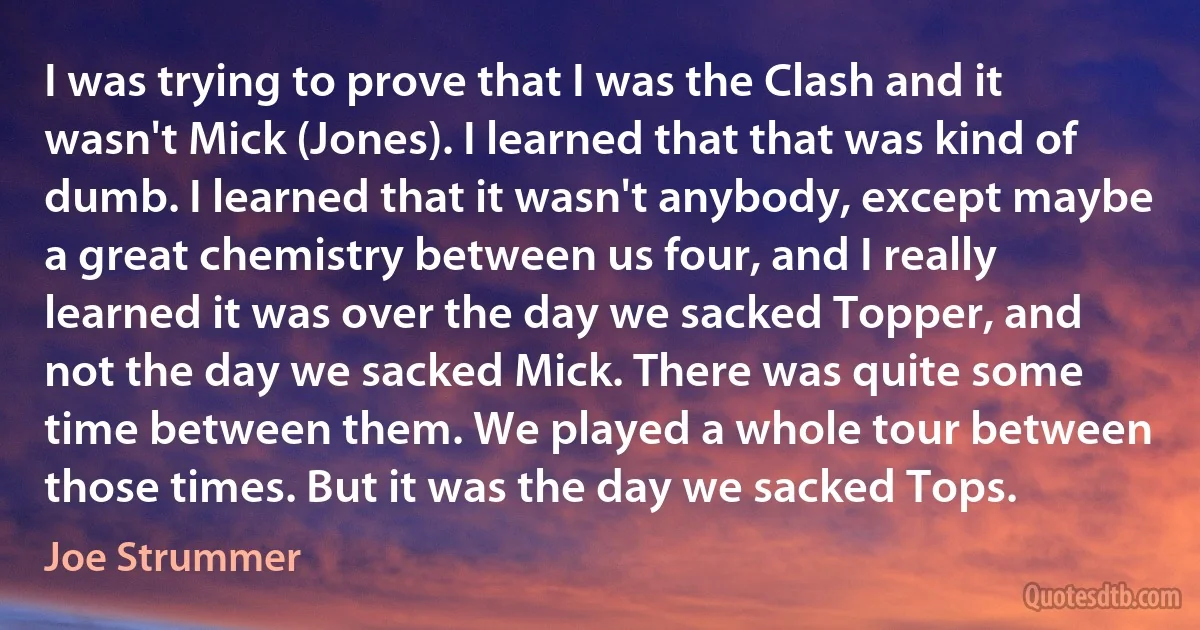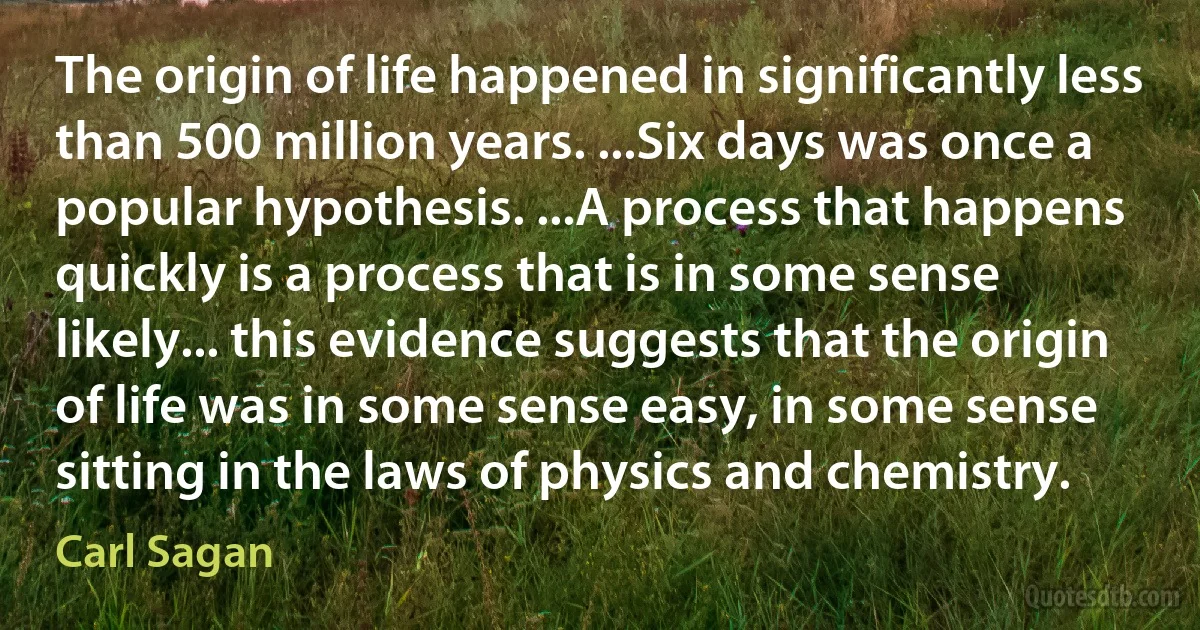Chemistry Quotes - page 6
I was an atheist, finding no reason to postulate the existence of any truths outside of mathematics, physics and chemistry. But then I went to medical school, and encountered life and death issues at the bedsides of my patients. Challenged by one of those patients, who asked "What do you believe, doctor?", I began searching for answers.

Francis Collins
Like Fichte, Brentano had one simple and powerful insight. He declared: there is a basic difference between a mental and physical act. if I slip on the snow and fall flat on my back, that is an unintentional physical act. But there is no such thing as an unintentional mental act. When I think, I have to think about something; I have to focus my mind on it. You could compare all mental acts (thinking, willing, loving, trying to remember something) to a searchlight beam stabbing into the darkness. There is an element of will, of 'intentionality,' in all mental activity. So it is quite inaccurate to compare mental activity to chemistry, or to a kind of drifting, like leaves on a stream. It flows purposefully or not at all.

Colin Wilson
He that could teach mathematics well, would not be a bad teacher in any of the rest [physics, chemistry, biology, psychology] unless by the accident of total inaptitude for experimental illustration; while the mere experimentalist is likely to fall into the error of missing the essential condition of science as reasoned truth; not to speak of the danger of making the instruction an affair of sensation, glitter, or pyrotechnic show.

Alexander Bain
When I began the following Work, my only object was to extend and explain more fully the Memoir which I read at the public meeting of the Academy of Sciences in the month of April 1787, on the necessity of reforming and completing the Nomenclature of Chemistry. While engaged in this employment, I perceived, better than I had ever done before, the justice of the following maxims of the Abbé de Condillac, in his System of Logic, and some other of his works. "We think only through the medium of words.-Languages are true analytical methods.-Algebra, which is adapted to its purpose in every species of expression, in the most simple, most exact, and best manner possible, is at the same time a language and an analytical method.-The art of reasoning is nothing more than a language well arranged."

Antoine Lavoisier
Here, then: a revolution [in science and chemistry] has taken place in an important part of human knowledge since your departure from Europe... I will consider this revolution to be well advanced and even completely accomplished if you range yourself with us. ...After having brought you up to date on what is happening in chemistry, it would be well to speak to you about our political revolution. We regard it as done and without any possibility of return to the old order.

Antoine Lavoisier
We are... bound to attach the greatest importance to the preliminary step taken by Lavoisier, who is even more justly called the father of modern chemistry than Kepler is called the father of modern astronomy. The exact claims of Lavoisier to this important place in the history of chemistry have been variously stated: ...since his time, and greatly through his labours, the quantitative method has been established as the ultimate test of chemical facts; the principle of this method being the rule that in all changes of combination and reaction, the total weight of the various ingredients-be they elementary bodies or compounds-remains unchanged. The science of chemistry was thus established upon an exact, a mathematical basis. By means of this method Lavoisier, utilising and analysing the results gained by himself and others before him, notably those of Priestley, Cavendish, and Black, succeeded in destroying the older theory of combustion, the so-called phlogistic theory.

Antoine Lavoisier
The entire recent history of biology shows that we are, to a remarkable degree, the results of the interactions of an extremely complex array of molecules; and the aspect of biology that was once considered its holy of holies, the nature of the genetic material, has now been fundamentally understood in terms of the chemistry of its constituent nucleic acids, DNA and RNA, and their operational agents, the proteins.

Carl Sagan
What is at issue here is not: What are the facts? but rather: How are the facts to be described in order to sanction one mode of explaining them rather than another? Some historians will insist that history cannot become a science until it finds the technical terminology adequate to the correct characterization of its objects of study, in the way that physics did in the calculus and chemistry did in the periodic tables. Such is the recommendation of Marxists, Positivists, Cliometricians, and so on. Others will continue to insist that the integrity of historiography depends on its use of ordinary language, its avoidance of jargon. These latter suppose that ordinary language is a safeguard against ideological deformations of the ‘facts.' What they fail to recognize is that ordinary language itself has its own forms of terminological determinism, represented by the figures of speech without which discourse itself is impossible.

Hayden White
Ben Stein: What do think is the possibility that intelligent design might turn out to be the answer to some issues in genetics, or in evolution?
Richard Dawkins: Well, it could come about in the following way: it could be that at some earlier time, somewhere in the universe, a civilization evolved by probably some kind of Darwinian means to a very, very high level of technology, and designed a form of life that they seeded onto, perhaps, this planet. Now that is a possibility, and an intriguing possibility. And I suppose it's possible that you might find evidence for that if you look at the details of our chemistry, molecular biology, you might find a signature of some sort of designer, and that designer could well be a higher intelligence from elsewhere in the universe. But that higher intelligence would itself have had to have come about by some explicable, or ultimately explicable, process. It couldn't have just jumped into existence spontaneously. That's the point.

Richard Dawkins



